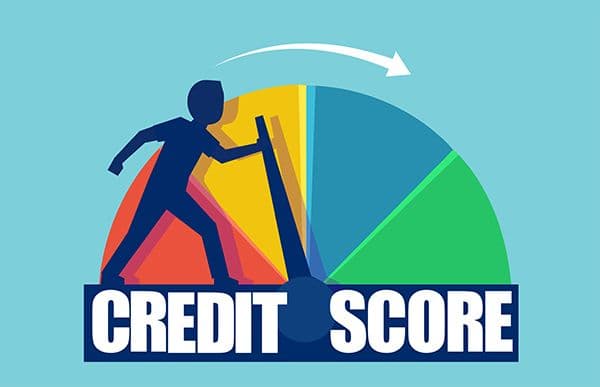What is a credit report and how to get one?

What is a credit report?
A credit report is a document prepared by a credit reporting agency based on information gathered from your credit providers and other sources. It details your credit activity, including loan payment history and account status. Lenders use these reports to determine whether to approve your loan application and at what interest rates. Additionally, other businesses may use credit reports for purposes such as insurance, rentals, utility services, and employment decisions.
How credit reporting works
When you apply for loans, you give personal information to a credit provider who shares your credit information with credit reporting agencies to obtain your credit report and your credit score. Credit providers then use your credit report and score to decide if they should give you credit. They may also share this information with other credit providers or third parties if needed. Credit reporting agencies can also share regulated information with third parties in certain situations while following the credit reporting laws.¹
What information goes in a credit report?
Your credit report is the summary of your credit history. It includes the following information:
Personal information: It includes details such as your name, date of birth, gender, employer, driver’s licence number, current address and previous address.
Credit rating: The category—low, fair, good, very good, or excellent—your score falls in is mentioned in the report. Some reports may even display your exact credit score, although not every credit reporting agency provides this detail.
Credit products: Your credit report lists every credit product you’ve held in the past two years. It includes details like the type of credit (credit card, home loan, etc.), the provider, your credit limit, dates when you opened and closed the account, and in case it was a joint applicant, the name of the other applicant.
Repayment history: Your credit report contains your repayment history for each credit product you’ve borrowed in the past two years. It shows details like your repayment amount, how often you paid and if you paid by the due date, when payments were due, any missed payments (not made within 14 days from the due date), and if you’ve caught up on them later.
Financial hardship information: If you’re facing tough times due to reasons like illness or job loss, you can ask lenders for help through a financial hardship arrangement. This could mean delaying a payment or changing the terms of your loan temporarily or permanently.
It won’t harm your credit score, and lenders appreciate seeing that you’re taking steps to recover from the situation. Any hardship arrangement you make may show up on your credit report, but only for the duration it’s in effect, usually up to 12 months.Defaults on utility bills, credit cards and loans: If you haven’t paid a debt like a utility bill or loan of over $150 for more than 60 days since the due date, your service provider might report it as a ‘default’ to a credit agency. They have to inform you before sharing the information.
A default remains on your credit report for up to seven years. If you pay it off, your report will still mention the default, but it’ll show that you’ve settled it.Credit applications: Your credit report mentions details about your credit applications. It shows how many times you’ve applied for credit, how much you’ve borrowed, and if you’ve guaranteed any loans.
Bankruptcy and debt agreements: These include bankruptcies, court judgments, personal insolvency agreements, or debt agreements in your name.
Credit report requests: These include the requests made by credit providers for your credit report. ²
What are the credit reporting agencies in Australia
A credit reporting body (CRB) evaluates an individual’s creditworthiness for another entity using personal information. In Australia, the main CRBs are:
Equifax – https://www.equifax.com.au/personal/
Experian- https://www.experian.com.au/
Illion- https://www.illion.com.au/
How to get a credit report in Australia
Now that you know what is a credit report, let’s understand how to get a free credit report. You can receive a free credit report annually from major agencies like Equifax, Illion, and Experian. If you’ve been denied credit in the last 3 months, you can get a free report within 10 days of requesting it. Some agencies may charge a fee for frequent reports or faster service. When you ask for your report, your contact details get updated. This means creditors and other people who have access to your credit report will have access to your current contact details. You can’t request someone else’s credit report. ³
How to fix mistakes on a credit report
If you spot an error in your credit report—whether the information is inaccurate, outdated, incomplete, or misleading—you can have it corrected. If the error was made by a CRB, you can reach out to them directly to correct it. If the mistake was made by the credit provider, they will forward your request to the reporting agency, which must respond within a reasonable timeframe.
If they agree there’s a mistake, they must resolve it for free. If they disagree, they must provide reasons for their decision. If you’re dissatisfied with their response, you can complain to the Australian Financial Complaints Authority for independent dispute resolution.⁴
Need a loan up to $10,000? Check out Credit24
With Credit24, you can easily apply for a loan of up to $10,000 by filling out the online application anytime and receive quick approvals if you qualify. With Credit24, you get all repayment details upfront, so you can rest assured there are no hidden fees.
Flexible options allow you to borrow between $500 and $10,000, with repayment terms between 6 and 36 months. You can choose from weekly, fortnightly, or monthly repayments with no penalties for early repayment. Fast payouts ensure funds are transferred within 60 seconds of approval.
Also, there’s dedicated customer support available to assist you at every step which makes us a trusted source to meet all your loan requirements.
Disclaimer:
IPF Digital Australia Pty Ltd, trading as Credit24, ABN 59 130 894 405. Australian Credit Licence 422839. The information in this article is of general nature and does not take into consideration your objectives, financial situation or needs. Lending criteria, fees and charges apply. For more information about our products, eligibility criteria and terms and conditions, please visit www.credit24.com.au.
Sources:
- Australian Govt Office Of the Australian Information Commissioner, What is credit reporting?
- moneysmart.gov.au, Credit scores and credit reports
- LegalAid Queensland, Credit reporting
- Moneysmart.gov.au, Credit repair
- Money.com.au, Compare Low Doc Car Loans & Rates

